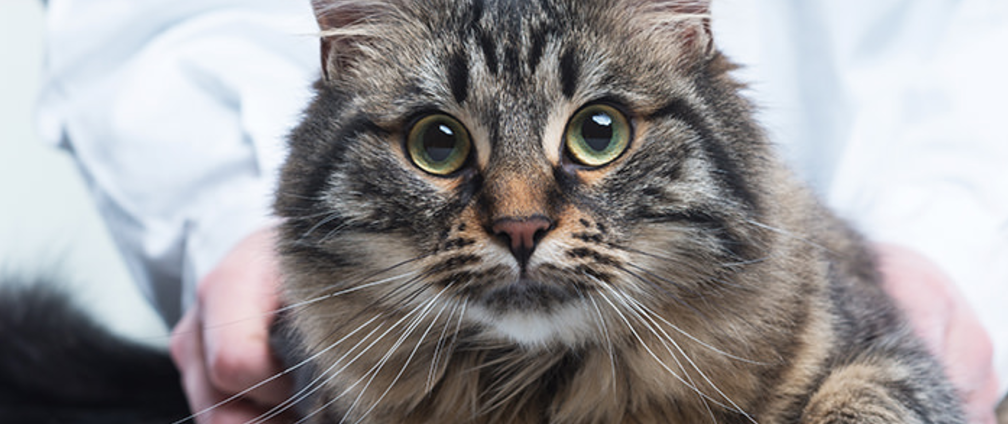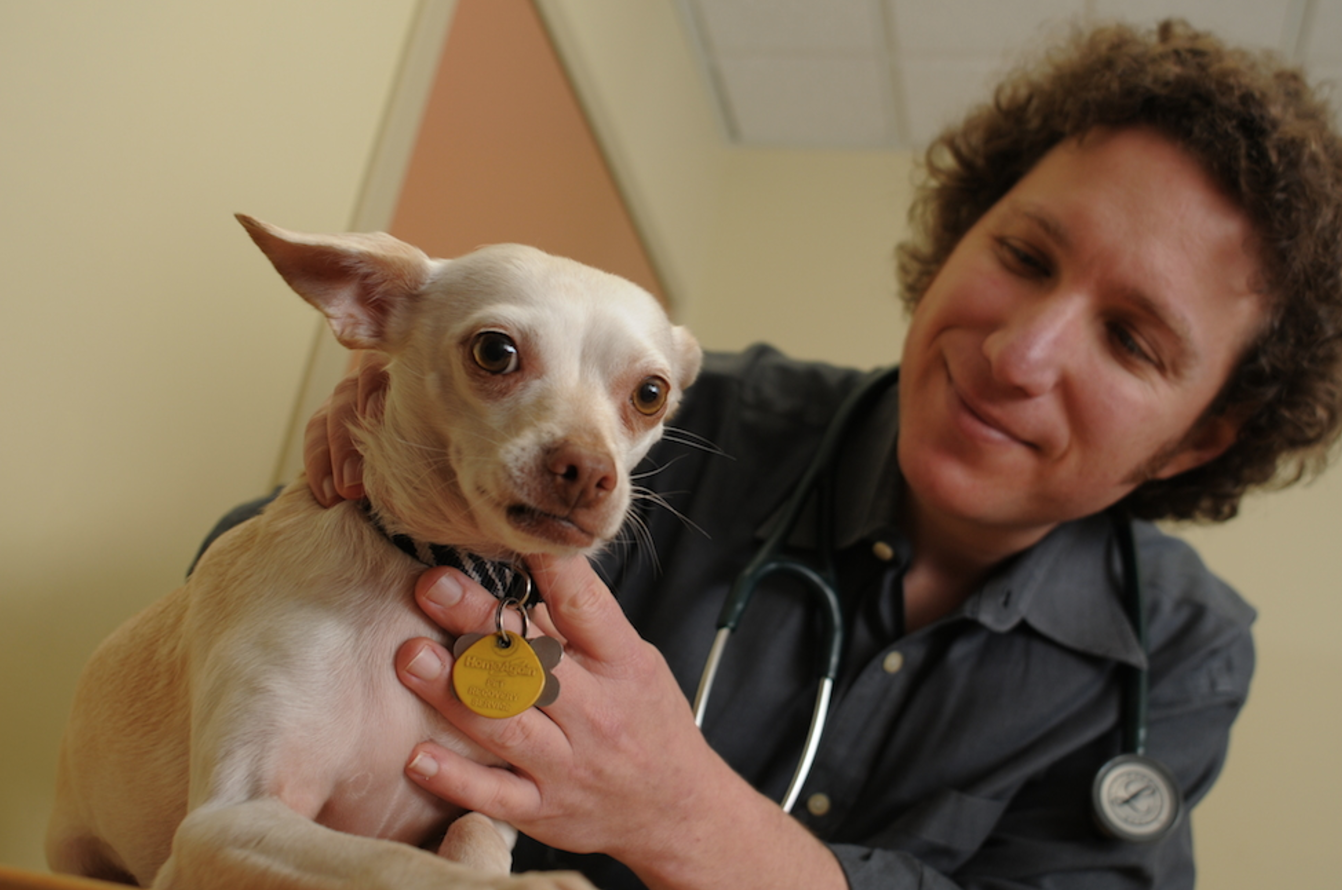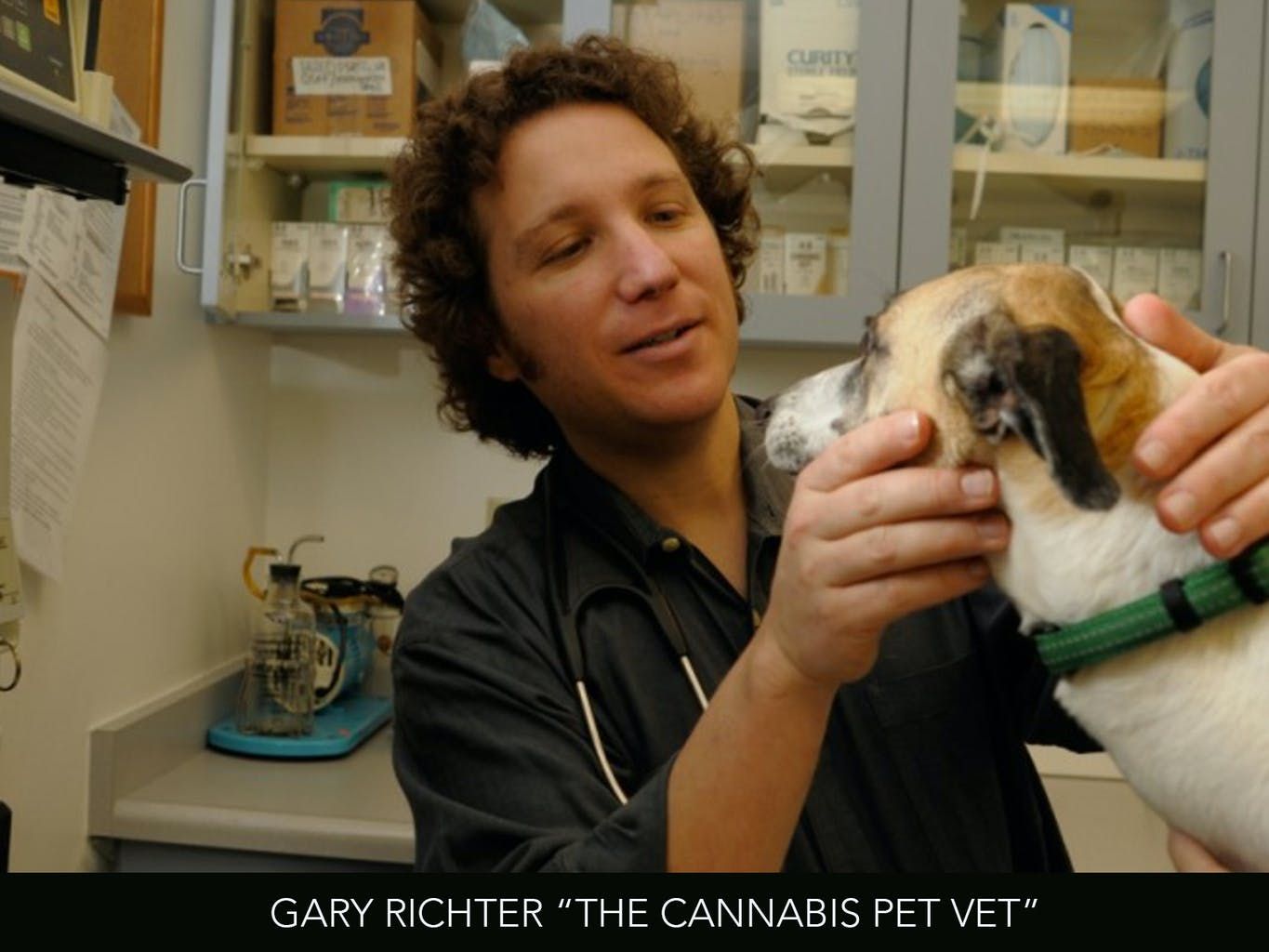Dr. Gary Richter, owner of Montclair Veterinary Hospital in Oakland, CA, has made it his mission to help animals and their owners lead happy, healthy lives. His path as a conventional veterinarian led him to learn and adopt more holistic practices until, inevitably, he incorporated cannabis into his alternative treatments. Now he is one of the most sought out experts on the effective use of cannabis to treat animals. We sat down with Dr. Gary to learn more about his practice at Montclair Veterinary Hospital and the benefits cannabis treatments can have on animals and the challenges that cannabis-friendly vets face today.
FOLLOW US ON FACEBOOK & INSTAGRAM
Q: Tell us a little about yourself and your practice.
A: I have been a veterinarian in the Bay Area since 1998. When I moved out here after veterinary school I started by working both general practice and emergency. After a number of years in practice I was looking for other ways to help my patients beyond what Western medicine had to offer me. I got trained in acupuncture and chiropractic and began doing herbal therapy and a variety of other alternative treatments. I found it was enormously helpful and I was able to help conditions and fix things that I was never able to do with Western medicine alone.

Q: How did you get started treating animals with cannabis?
A: Living where we live (in Oakland, California), it was a natural progression to find my way into cannabis from a medical perspective. I had a few pet owners come in and talk to me about their experiences trying cannabis on their animals. I started talking to the few people in my professional circles that had some experience with it and we started putting together dosages and protocols and ratios for various conditions.
RELATED: CAN CBD OIL PROVIDE PAIN RELIEF FOR YOUR PET?
I was fortunate enough to get in contact with a guy named Paul Hansberry who runs a small, artisanal grow out of San Francisco called Lovingly and Legally. I sat down with Paul and his business partner Susan and we came up with three formulas for pets – a high CBD, a high THC, and an even ratio. We’ve had enormous success since we put these formulations together two years ago. When I started using cannabis it was this unbelievable eye-opening moment. Here’s this medicine that is so unbelievably powerful and effective and almost completely unknown in the veterinary industry.
Q: Can you share an example of a successful outcome treating an animal with cannabis?
A: I had somebody come in with their cat that had chronic inflammatory bowel issues. This kitty was on all kinds of medications. The woman pretty much told me that unless I could do something to help this cat, she was going to have to put him to sleep because he was so miserable and there was nothing more to do. We put him on some supplements and made some dietary alterations but without a doubt the thing that turned a corner for this cat was the cannabis.
Literally within two days of putting this cat on cannabis he had his first normal bowel movement that he’d had in almost a year. We were able to drastically improve this kitty’s life to the point where he was stable. The owner was ecstatic. It was so shocking to me that everything from western medicine had failed and something as simple as an extract from a plant literally in a day turns the cat around.

Q: What is the most common reason pet owners bring their animals to you?
A: Speaking broadly there are two groups of people that come to me. Either they’ve tried everything, nothing has worked, and I’m their last resort, or they come in because they’re holistically minded people and they want to get started in that way before they move towards Western medicine. We see people bring animals in for arthritis and back pain, seizure disorders, GI problems, stress and anxiety. Pretty much all the same sort of things people would seek medical help for.
What’s the main difference between treating animals and people with cannabis?
I would say the indications and uses for cannabis in animals are almost exactly the same as they are in people. The differences are in the dosing. It’s just like any other medicine that any veterinarian would use, you have to calculate a dose. The problem is that most people don’t know what those doses are in cannabis. There’s such a huge information gap that you literally have to start from the beginning.
If you ask a roomful of doctors or a roomful of veterinarians if they’ve heard of the endocannabinoid system, the vast majority of them will say no. Every veterinarian I talk to is really interested to know more, it’s just that nobody’s ever taught them and they’ve never had the opportunity to learn. Now with the legal environment the way that it is, they’re literally being threatened away from it.
Q: Would you say the legal environment is one of the biggest challenges you face?
A: By far and away the biggest challenges are the legal issue and the lack of understanding on the veterinary community’s part of what they have at their fingertips. As of beginning of this year, the veterinary board has taken hard stance in regards to cannabis and pets and threatening vets licenses should they even have the discussion with clients.
The rationale is because Prop 215 was very specific about medical cannabis being for humans. I’m working with the California Veterinary Association in hopes that legislation will introduce a bill that will amend and allow cannabis for animals. Right now veterinarians don’t realize how valuable cannabis can be and the sad thing is that it may ultimately take a pharmaceutical company to wake them up. That’s where information tends to come from and you can say what you want about that, it just is what it is.
Q: What motivates you and what is your biggest area of passion?
A: My passion first and foremost is always about the animals and making pets better. Primarily, I approach that through integrative medicine, combining western medical care with all the alternatives out there. There are a finite number of people and animals I can see in my office, so I’ve started to look at what I can do to get the word out to other pet owners to understand the options that are out there.
Q: Where can pet-owners find more information about using cannabis for their pets?
A: I’ve got a book on integrative medicine for dogs and cats coming out in August that has a whole chapter dedicated to cannabis.
Q: Any last words you want to impart to the public?
A: If this is something you’re interested in, I encourage people to please talk to your veterinarian or find some resources. Don’t wing it, don’t try to extrapolate a dose for your cat or dog as if they’re a small person. It just doesn’t really work that way and it’s a recipe for trouble. Find some resources and do it right.
If you are new to cannabis and want to learn more, take a look at our Cannabis 101 post. HelloMD can help you get your medical marijuana recommendation; it’s 100% online, private and efficient.






